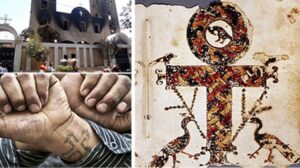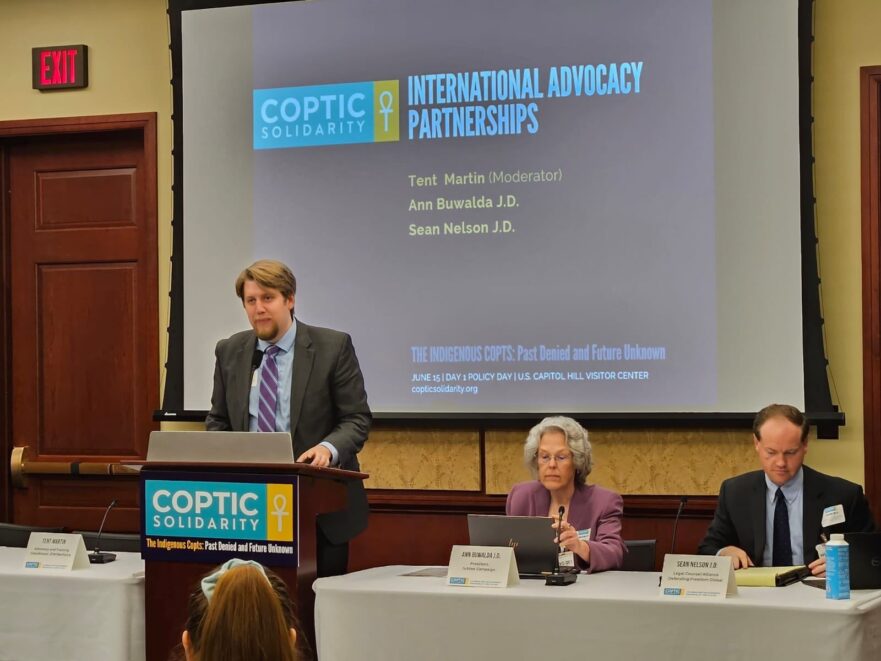June 15, 2023
Coptic Solidarity hosted its 11th annual conference The Indigenous Copts: Past Denied and Future Unknown in Washington, DC June 15-16. Legislators, academics, advocates and policy experts convened to share their views and recommendations to provide greater protection and equality for the Copts of Egypt.
Policy Day, hosted in the U.S. Capitol Visitor Center, included a panel focused on International Advocacy Partnerships. Trent Martin, 21Wilberforce Advocacy and Training Coordinator, moderated the session with a panel comprised of Anne Buwalda, J.D., President of Jubilee Campaign and Sean Nelson, J.D. of Alliance Defending Freedom Global. Questions Martin asked the speakers included:
- What are some of the top international forums or organizations that you think more FoRB organizations need to engage with? Why are those particular institutions strategic and what is the most effective way for advocates to engage with them?
- What are the various ways civil society advocates help translate high-level international dialogue and agreements to practical changes on the ground in some of the religious persecution hotspots around the world?
- In specific relation to Egypt, what are some ways that you’ve seen the international human rights system effectively leveraged to advocate for change in the country?
Other sessions featured on a robust day one of the conference included: Egypt’s Denial of Copts’ Status and Rights as Indigenous Peoples,Unequal by Law: How Religion Usurps Citizenship Rights in Egypt, Practical Solutions for Achieving Equal Citizenship Rights for Egypt’s Copts and The Ordeal of Christians in the Middle East & Africa.
Day two of the conference took place at a hotel in the area with keynote speakers and sessions on Controlling the Narrative in Egypt and Middle East Christians in Crisis.
 Coptic Solidarity recently published a new report titled The Coptic Identity: Recognizing the Coptic Indigenous Peoples Status for Protection from State-Sponsored Discrimination, which was presented to the UN Special Rapporteur for the Rights of Indigenous Peoples and to 8 United Nations Country Missions in New York City during the UN Permanent Forum on Indigenous Rights.
Coptic Solidarity recently published a new report titled The Coptic Identity: Recognizing the Coptic Indigenous Peoples Status for Protection from State-Sponsored Discrimination, which was presented to the UN Special Rapporteur for the Rights of Indigenous Peoples and to 8 United Nations Country Missions in New York City during the UN Permanent Forum on Indigenous Rights.
The report explains why Copts qualify and should be recognized as an indigenous minority and contends that Egypt’s Copts merit additional protection for their persons, and for cultural, linguistic, and historical protection beneath a variety of United Nations Charters and Agreements.
Learn more about the work of Coptic Solidarity here.

